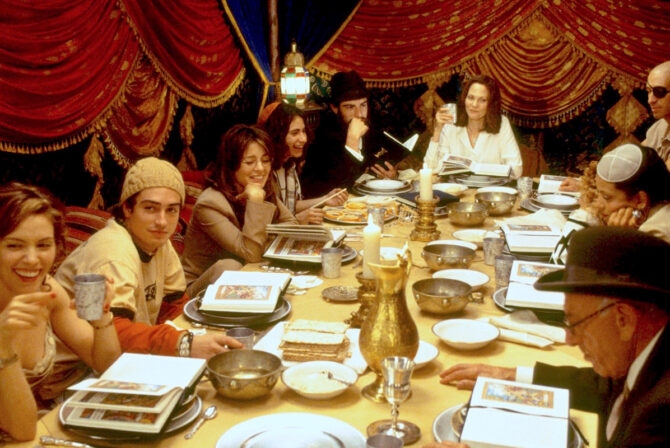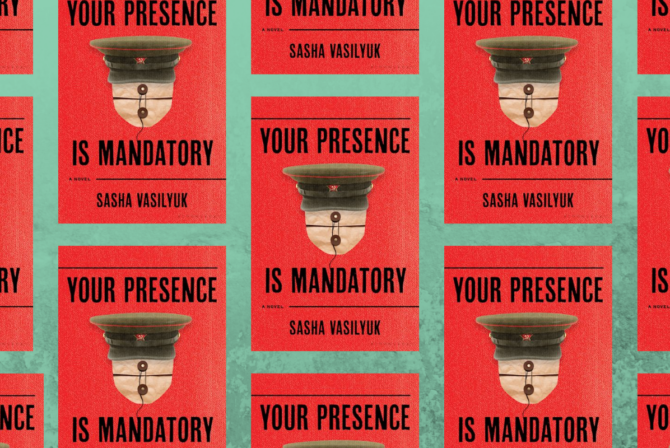When my kids were little they attended Jewish preschools where volunteering was mandatory. How can volunteering be mandatory? Simple. We had designated dates to be “mystery reader” and “Shabbat parent,” which involved saying a prayer, lighting candles, and supplying juice and snacks. This carried over into religious school, where we helped make siddur (prayer book) covers, painted yarmulkes, and contributed to the bake sale. Although technically there was a choice, no parent in his or her right mind would say no to helping out. In fact, we often bargained for more time by signing up as substitutes on waitlists.
But something happens as our kids move up into the higher religious school grades. Does our attitude shift along with their reluctance to attend? I co-chair the education committee at my temple’s religious school, and I’ve noticed that getting parents to volunteer is a tough sell. Volunteer sign-up sheets for events are like a warning flag for parents to bolt to their cars. After a parent meeting last year, a mom approached me with a warning: “Please never ask me to volunteer, but I do have a comment and suggestion regarding what you need to do.” Of course you do.
Our children attend school all day and are then dragged to religious school on Sunday and weekday afternoons. We demand that they attend, yet we can’t wait to get out of there and go to Starbucks. I get that getting them there (including dragging ourselves out of bed early Sunday morning) can be hard. They’re not exactly skipping with joy towards the car. But neither are we, and we’re not leading by example.
READ: Expensive Dues Aren’t the Only Reason People Don’t Go to Synagogues
I had no experience with religious school, growing up in Israel. So raising kids in the U.S. was a learning curve and series of negotiations with my yeshiva educated (K-8) husband. Who knew that studying the Hebrew letters could be so confusing?
“You don’t understand because you’re good at languages,” my then 7-year-old complained. I wasn’t especially good at languages–I just happened to be born to an American mother and an Israeli father who immersed me in both languages from day one. There was no talent necessary on my part. Torah tropes were another mystery to me. One year during a High Holiday service I leaned in and asked my husband what the hieroglyphics in the prayer book meant. “Trope,” he said. You live and learn.
I didn’t feel that I could volunteer at religious school, as I was sort of an outsider. I am Israeli-American, not very religious, have not had a formal bat mitzvah, and if I’m being honest, care more about my kids learning modern Hebrew than prayers. I knew I was qualified to hand out juice boxes and snacks, but to participate (much less, chair) on a committee? No. Not me.
We moved to Pittsburgh two years before my daughter’s bat mitzvah, which motivated us to join a congregation and continue with her studies. Her bat mitzvah became a byproduct of a much bigger gift. We met some of our dearest friends at our new temple and became integrated into the community. I wasn’t working at the time and was roped into different volunteer roles. Eventually I agreed to co-chair the religious school’s education committee, a role that takes up many hours of my time, but is also immensely rewarding. And yes, I do work full-time. And yes, writing really is a full-time job.
READ: I Was Shamed For Breastfeeding in a Synagogue
Here is what I learned from volunteering for my temple:
1. The more involved you become in your community, the greater your sense of belonging.
2. The greater your sense of belonging, the stronger your proprietary interest in what goes on.
3. The stronger your proprietary interest, the more deeply invested you become in the growth and success of your community.
4. The more successful, comforting, and thriving your community becomes, the more you want to help out to ensure its continued success.
This is a cycle that promotes productivity and community and benefits everyone. So why doesn’t everyone become involved? It’s not enough to complain and give advice without rolling up your own sleeves and making a commitment. Involvement is the perfect antidote to feeling like you don’t belong.
Many years ago a rabbi told me that giving back to my community not only helps the community, but also helps ground us with a sense of purpose and belonging. I didn’t understand what he was talking about, as I assumed he was trying to manipulate me into helping out. But I understand now.







